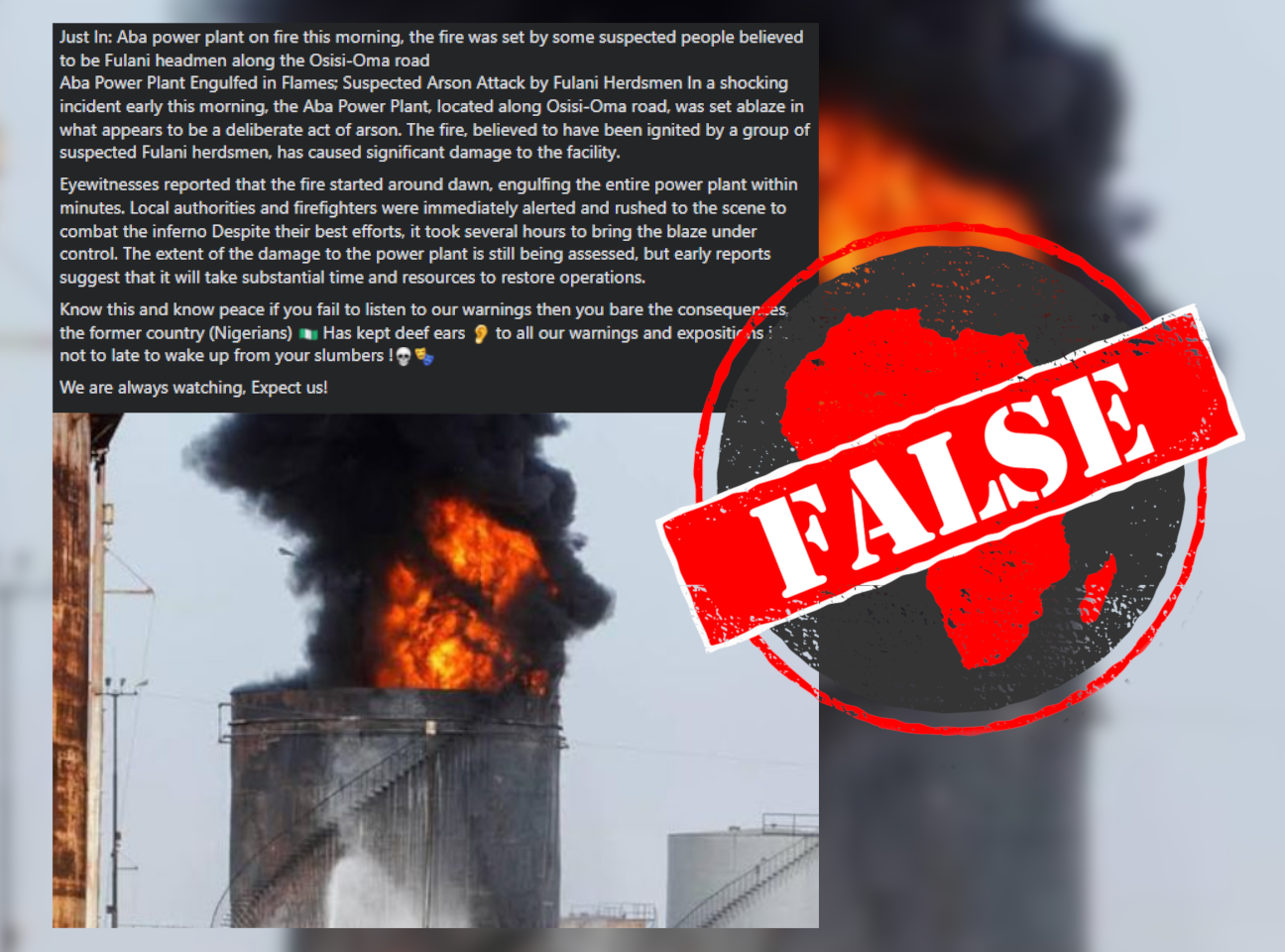IN SHORT: Nigeria’s Geometric Power Plant in the southern town of Aba has basked in the national limelight since its inauguration. However, claims that the station has since been burned down are false.
In February 2024, Nigerian president Bola Tinubu inaugurated a 188-megawatt power plant in the southern Nigerian town of Aba.
The project put Aba in the national spotlight and made headlines in several local news outlets.
Developed by Geometric Power Plant, the US$800 million plant is expected to supply electricity to the town and surrounding areas without relying on the national grid.
But a post shared on Facebook on 3 March in Nigeria claims that the power plant was subsequently set on fire by Fulani herdsmen.
The Fulani are a widespread group of mostly Muslim cattle herders who live throughout West Africa.
In Nigeria, Fulani groups are sometimes accused of causing conflict in a struggle for resources. However, some Fulani communities have accused the media of stereotyping them.
The Facebook post reads, in part: “Aba Power Plant Engulfed in Flames; Suspected Arson Attack by Fulani Herdsmen. In a shocking incident early this morning, the Aba Power Plant, located along Osisi-Oma road, was set ablaze in what appears to be a deliberate act of arson. The fire, believed to have been ignited by a group of suspected Fulani herdsmen, has caused significant damage to the facility.”
The post included four photos of buildings that appeared to be on fire.
The same claim appeared elsewhere on Facebook including here, here, here, here, here, here, here and here.
But was the power station set on fire? We checked.

‘Fake news’
No credible media house reported that the plant was on fire, which would have been the case if it were true, considering the media coverage the project received.
A Google reverse image search of the first photo led us to a report on the US cable news network CNN in April 2023, showing a fire at a Pinova plant in Brunswick, Georgia, USA.
Our search revealed that the second photo was used in a report by the SABC, a South African news broadcaster, in December 2019. It showed the Kwagga substation in Pretoria West, South Africa, on fire.
The third photo appeared in a Reuters article in May 2023. It was a photo of a fire at Shell Plc’s chemical plant in Deer Park, Texas, USA.
The last photo, according to the Voice of America report, was taken when the Zahrani oil plant in southern Lebanon burned in 2021.
Geometric Power also shared a screenshot of the claim about the supposed fire at the Aba plant and stamped it “FAKE NEWS”.
Republish our content for free
For publishers: what to do if your post is rated false
A fact-checker has rated your Facebook or Instagram post as “false”, “altered”, “partly false” or “missing context”. This could have serious consequences. What do you do?
Click on our guide for the steps you should follow.
Publishers guideAfrica Check teams up with Facebook
Africa Check is a partner in Meta's third-party fact-checking programme to help stop the spread of false information on social media.
The content we rate as “false” will be downgraded on Facebook and Instagram. This means fewer people will see it.
You can also help identify false information on Facebook. This guide explains how.


Add new comment